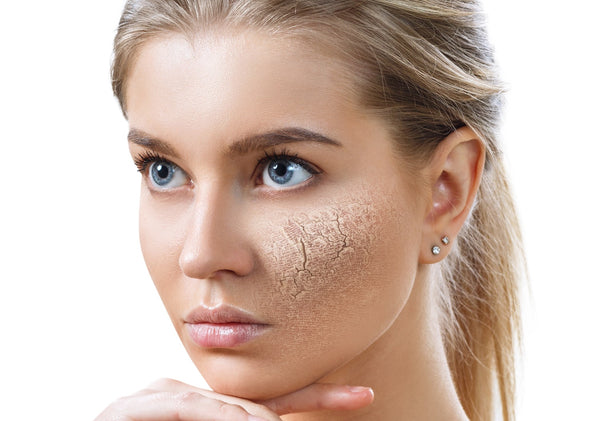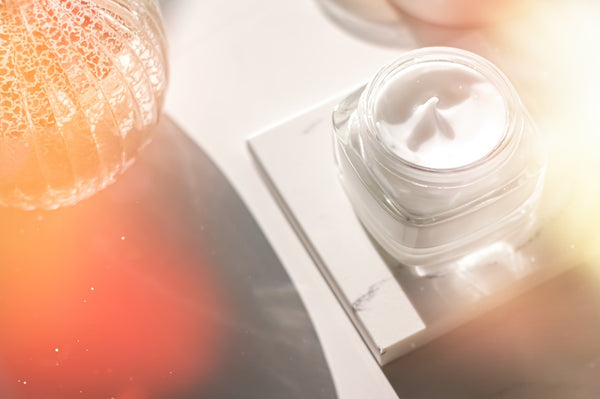Chemical vs Mineral Sunscreen: Understanding the Differences

Which Sunscreen is Better for Your Skin: Chemical or Mineral?
When it comes to protecting your skin, which reigns supreme in the chemical vs. mineral sunscreen debate?
If you haven't already caught on, sunscreen is an absolute must for keeping skin happy, healthy, and radiant. That said, navigating the world of SPF can feel like entering a labyrinth — vast and easy to get lost in.
Chemical sunscreens. Physical sunscreens. Mineral sunscreens. Cue the confusion!
Understanding the differences between chemical and mineral sunscreen will help you determine which is right for your skin.
Sunny summer days are just around the corner, so let’s not waste another moment.
Chemical vs. Mineral Sunscreen: What the Science Says
Both chemical and mineral (or physical) sunscreens pack a powerful punch against the sun’s harmful rays — it’s how they protect skin that varies.
When all is said and done, which is better for your skin: chemical or mineral sunscreen?
To truly answer that question, you must first weigh the benefits and drawbacks of chemical vs. mineral sunscreens.

"Two main processes contribute to aging and skin damage. One of course is genetic and the other is environmental UV damage from the sun is the most significant contributing factor. And the way that it works is that the UV rays create reactive oxygen species that damaged collagen and this creates fine lines, sallow skin dullness as well as pigment changes."
- Dr. Cat
Mineral Sunscreen Pros & Cons
Mineral SPF: The Good
- Mineral sunscreens provide a physical barrier against UVA and UVB rays without penetrating your skin. Since your skin isn’t absorbing it, there are fewer chances for irritation or potentially harmful ingredients entering your bloodstream.
- Mineral sunscreens create a physical barrier on your skin’s surface, making them less likely to degrade in sunlight than chemical sunscreens.
- Unlike chemical formulas, mineral sunscreens deliver immediate UV protection upon application. Hello, instant protection!
- For acne-prone skin, mineral sunscreen is usually the safer option. Because it contains physical blockers (like zinc oxide and titanium dioxide), it’s less likely to clog pores or cause irritation. It sits on top of the skin rather than absorbing into it, making mineral sunscreens the better choice for those with breakout-prone skin.
Mineral SPF for the win! But wait… are there cons?
 Mineral SPF: The Not-So-Good
Mineral SPF: The Not-So-Good
- Titanium dioxide and zinc oxide particles in mineral sunscreens reflect light when the sun hits them. In high concentrations, they can become more noticeable on the skin, creating a white, pasty appearance.
- The consistency of mineral sunscreens is also thicker and harder to blend into the skin than chemical sunscreens. This is because zinc oxide and titanium dioxide-based UV filters don’t readily dissolve.
- Those same ingredients also become less effective over time. As they’re gradually worn or rubbed off the skin, you need to reapply mineral sunscreen more frequently than chemical sunscreens.
- Mineral sunscreens are generally less water-resistant than chemical sunscreens because they work by creating a physical barrier on the surface of your skin. While effective against UV rays, it also wears off easier, especially when swimming or sweating.
Continuing our comparison of chemical vs. mineral sunscreens, how do chemical formulas stack up?
Chemical Sunscreen Pros & Cons
 Chemical SPF: The Good
Chemical SPF: The Good
- Depending on the combinations of active ingredients (like avobenzone, octinoxate, or homosalate) and how they’re formulated, chemical sunscreens offer a wider range of SPF values compared to mineral sunscreens.
- Since chemical sunscreens are designed to readily absorb into the skin (rather than sit on top like mineral sunscreens), they typically have a more lightweight texture and consistency.
- Similarly, chemical sunscreens are formulated with organic ingredients that absorb UV radiation and turn it into heat — without leaving a visible residue on the skin, like most mineral sunscreens. Goodbye, dreaded white cast!
- No sunscreen is completely waterproof, but chemical sunscreens tend to be more water-resistant than mineral sunscreens. Since they absorb into your skin, they’re less likely to wash away from sweat or water.
To fairly measure up chemical vs. mineral sunscreens, we have to discuss chemical formulas’ drawbacks.
Chemical SPF: The Not-So-Good
- Some of the active ingredients in chemical sunscreens can penetrate the skin and trigger irritation or allergic reactions in some individuals.
- There are some chemical sunscreen ingredients to avoid altogether. For instance, oxybenzone and octinoxate have been linked to potential health risks, such as hormone disruption.
- Although you won’t need to reapply chemical sunscreen as often as its mineral cousin, it doesn’t offer immediate protection. You should wait about 20-30 minutes before sun exposure for it to fully absorb and be effective.
- Since chemical sunscreens work by absorbing UV rays and converting them into heat, their active ingredients break down faster. As a result, chemical sunscreens may require more frequent reapplication to avoid sunburn.
 We’ve got a clear picture of the pros and cons of each, but what else should you look out for?
We’ve got a clear picture of the pros and cons of each, but what else should you look out for?
Chemical vs. Mineral Sunscreen: Important Factors to Consider
Which mineral sunscreen is better: zinc oxide vs. titanium dioxide?
Both zinc oxide and titanium dioxide offer broad-spectrum protection against UVA and UVB radiation. Zinc oxide is more soothing, making it a good option for those with reactive or allergy-prone skin. Titanium dioxide, on the other hand, is more lightweight, translucent, and blendable.
Chemical vs mineral sunscreen: which provides better UVA/UVB protection?
Both chemical and mineral sunscreens provide adequate UVA/UVB protection, but they differ in the type of protection they offer. Mineral sunscreens physically block the sun's rays, while chemical sunscreens absorb them.
The best option for you comes down to your skin type and personal preferences.
Sunscreen safety: chemical vs. mineral options for children
Researchers generally agree that when it comes to kids, any sunscreen is better than none at all. According to the American Academy of Pediatrics (AAP), any “broad-spectrum” with 15+ SPF will do.
Dry skin: Chemical vs. mineral sunscreen
Mineral sunscreen is usually better for dry skin than chemical formulations. Since they contain natural ingredients like zinc oxide and titanium dioxide, they’re less likely to exacerbate dryness. Mineral sunscreens also tend to have a thicker consistency, offering more hydration and moisture than chemical ones.
Which is better for oily skin?
Chemical sunscreen is usually better for oily skin. They typically have a thinner, more lightweight consistency that doesn't feel as heavy on the skin. They're also more water-resistant than mineral formulas, which is beneficial if you’re oily or prone to sweating.
Chemical vs. mineral sunscreen: For sensitive skin, which is better?
 Mineral sunscreen is usually better for sensitive skin. The natural ingredients they’re formulated with are less likely to irritate or trigger allergies than those in chemical sunscreens.
Mineral sunscreen is usually better for sensitive skin. The natural ingredients they’re formulated with are less likely to irritate or trigger allergies than those in chemical sunscreens.
That said, some mineral sunscreens can still contain ingredients that irritate sensitive complexions. To be safe, test different options to see which fares better with your skin.
Physical vs chemical sunscreen: which is safer overall?
Physical and chemical sunscreens are considered safe but have different properties and potential side effects.
Physical sunscreens contain natural minerals that create a barrier on your skin to reflect and scatter the sun's rays. Chemical sunscreens use synthetic compounds to absorb UV rays before penetrating your skin.
Ultimately, the safest option depends on your individual needs and skin type.
Get the Best of Both Worlds with MD GLAM!
Why the debate over chemical vs. mineral sunscreen when you can enjoy the benefits of both?
Our Sunshout Sunscreen SPF 50 is a game-changing hybrid of chemical and mineral sunscreen active ingredients. It’s scientifically formulated to be gentle on all skin types, so you (and your little ones) can soak up the sunshine.
More fun in the sun, less worry. Yes, please!
Transform your complexion and achieve maximum glow with premium, medical-grade skincare technology exclusively from MD GLAM.










